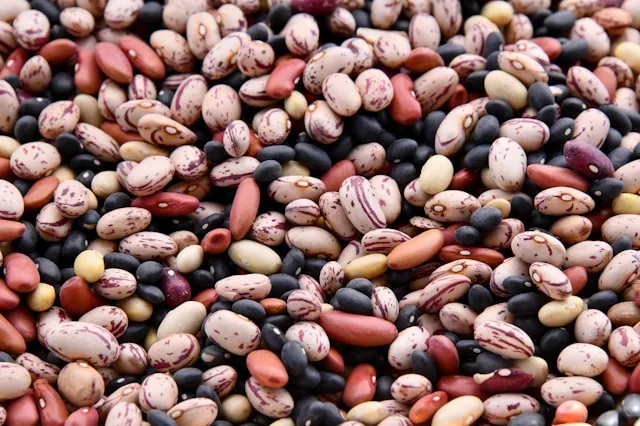Explore the World of Healthy Foods – A Wonderful Gift
Principles of Healthy Eating

Mediterranean Diet
The Mediterranean diet is characterized by a high intake of plant-based products, olive oil, and fish, with a restriction on red meat and sweets. It primarily consists of home-cooked meals with minimal processing, seasonal vegetables, fruits, and herbs. This diet has numerous health benefits, including a reduced risk of heart disease, diabetes, and certain types of cancer. Its richness in polyunsaturated fats, vitamins, fiber, antioxidants, and other beneficial components contributes to these advantages. One of its key features is the lack of a strict product list, allowing individuals to adopt a healthy diet regardless of their geographical location.




Principles of Healthy Eating
A balanced diet is critical to maintaining overall health and wellness. It provides the body with essential nutrients, including vitamins, minerals and essential fatty acids, to support bodily functions. A balanced diet helps maintain a healthy weight, reduces the risk of chronic diseases such as diabetes and heart disease, and increases energy levels. It helps develop healthy eating habits that can increase longevity.
Taste these fruits

Dragon fruit
“Dragons’ fruit” refers to a type of exotic tropical fruit. The fruit has a vibrant pink or yellow skin, covered in scales, and its pulp is filled with small black seeds. It tastes sweet and slightly sour, with a flavor profile often described as a combination of a kiwi and a pear. Rich in antioxidants and vitamins, dragons’ fruit is considered a nutritious snack and is often consumed fresh or used in smoothies, jams, and juices.

Avocado
Avocado is the fruit of the Persea americana tree. With its external appearance resembling a nut and chemical composition and taste characteristics similar to a vegetable, avocado is technically considered a fruit. It’s prized for its high nutritional value and dense texture. Avocados are extremely popular among health-conscious individuals, often referred to as a “superfood” due to its numerous benefits. Avocados are native to Central America and Mexico.
Diets
Diets come in various forms, each with unique nutritional focuses. The Mediterranean diet emphasizes whole grains, fruits, and healthy fats, inspired by traditional Greek and Italian cuisine. The keto diet, short for ketogenic, focuses on high-fat intake to induce a metabolic state called ketosis. Paleo, or “caveman,” diets restrict grains, dairy, and processed foods, aiming to replicate ancestral eating habits. Flexitarian, vegetarian, and vegan diets vary in their allowance of animal products, with flexitarian allowing some meat, vegetarian excluding meat, and vegan excluding all animal-derived foods. Other diets include gluten-free, low-carb, and intermittent fasting, each with its benefits and drawbacks.
Healthy Foods
Healthy eating is a crucial aspect of maintaining a balanced lifestyle. Certain foods stand out for their potential health benefits. Avocados, for instance, are rich in healthy fats, fiber, and various essential vitamins and minerals. The exotic Dragon Fruit is a good source of vitamin C, potassium, and antioxidants. Bananas are renowned for their potassium content, while oranges are high in vitamin C and flavonoids. Apples, too, offer a range of nutrients, including fiber, antioxidants, and various vitamins. Incorporating these foods into your diet can have a positive impact on overall health and well-being.




Nutrients
Nutrients are the building blocks of life, essential for maintaining optimal health and well-being. They are the chemical substances that provide energy and support growth, repair, and maintenance of the body’s tissues. There are six main categories of nutrients: carbohydrates, proteins, fats, fiber, vitamins, and minerals. Carbohydrates provide energy, while proteins build and repair tissues. Fats are essential for the absorption of vitamins and maintaining healthy skin and hair. Fiber aids in digestion and maintains healthy bowel movements. Vitamins and minerals are crucial for various bodily functions, such as immune function, blood clotting, and bone health.
Vitamins
Vitamins are a group of organic compounds that are essential for maintaining the normal functioning of the body. They play a crucial role in Energy production, Immune function, and Development and growth. There are 13 vitamins that the human body cannot produce on its own, and they must be obtained through a well-balanced diet or supplements. Vitamin deficiency can lead to various diseases, including Scurvy, Beriberi, and Rickets. A diet rich in fruits, vegetables, whole grains, and lean proteins provides adequate amounts of essential vitamins, ensuring overall health and well-being.




A detailed description of each of the 13 essential vitamins
Vitamins are crucial components of our diet, helping our bodies thrive and function efficiently. For instance, Vitamin D is especially important for bone health, immune support, and the regulation of calcium and phosphorus in the body. With many people experiencing deficiencies, understanding the role of Vitamin D can transform your approach to health and wellness.
Equally significant is Vitamin C, known for its powerful antioxidant properties. This essential vitamin not only bolsters the immune system but also supports skin health, aids in wound healing, and plays a key role in the absorption of iron from plant-based foods.
Our detailed descriptions will guide you through the intricate benefits of all 13 essential vitamins—each with its unique characteristics and functions. Whether you’re a health enthusiast seeking to enhance your nutrition knowledge or simply curious about the intricacies of dietary health, our guide promises to enrich your understanding of these vital nutrients.
Vitamin content in food products
Vitamins are essential nutrients that play a crucial role in maintaining our overall health and well-being. From the moment we wake up in the morning to the time we go to bed at night, our bodies rely on vitamins to function properly. Food is one of the primary sources of vitamins, and understanding which foods are rich in these nutrients can help us make informed choices about our diet.




Recommended daily amounts of essential vitamins
Understanding the recommended daily intake of vitamins is important. This knowledge allows individuals to tailor their diets to meet their nutritional needs, ensuring they consume sufficient amounts of each vitamin. Deficiencies can lead to a variety of health problems, including fatigue, weakened immune function, and chronic diseases. For example, inadequate Vitamin D can result in bone disorders, while insufficient Vitamin C can impair wound healing and increase susceptibility to infections.
By being aware of the daily requirements for each vitamin, people can make informed dietary choices, focusing on nutrient-dense foods that provide the necessary vitamins and minerals. This not only promotes better health but also helps prevent long-term health issues related to vitamin deficiencies or excesses. In today’s fast-paced world, taking the time to understand and prioritize vitamin intake can contribute to a balanced, harmonious lifestyle, ultimately enhancing quality of life and longevity.
Minerals
The recommended doses of minerals vary depending on the specific element, individual needs, and medical conditions. Generally, microelements are essential for maintaining overall health and well-being. The World Health Organization (WHO) sets the following recommended dietary allowances for microelements: calcium (1,000-1,200 mg/day), iron (15-18 mg/day), magnesium (400-420 mg/day), potassium (4,700 mg/day), and zinc (15-20 mg/day). It’s crucial to maintain a balanced diet and consult with a healthcare professional for personalized recommendations.




The recommended daily intake for some of the dietary minerals
Sufficient daily intake of essential dietary minerals is fundamental for maintaining good health. These inorganic substances support numerous bodily functions, enhance immune system performance, prevent deficiencies, promote physical well-being, and contribute to a balanced diet. Prioritizing mineral-rich foods is crucial for individuals seeking to maintain optimal health and prevent potential health issues related to mineral deficiencies.
Some food sources of dietary minerals. The role of these minerals in the human body
A varied and balanced diet that includes a wide range of foods can help provide sufficient levels of these essential dietary minerals. Incorporating different food groups will not only meet mineral needs but also contribute to overall health and well-being. Making informed dietary choices can ensure optimal mineral intake and support various body functions necessary for good health.





